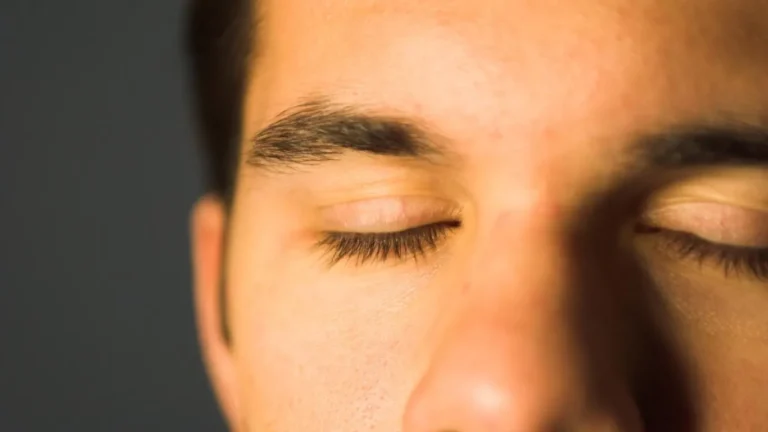How RA Can Quietly Impact Your Hearing and What to Do About It
If you’re living with rheumatoid arthritis (RA), you might already know about the joint pain, swelling, and stiffness it can bring. But did you know RA can also affect your hearing? It’s something that doesn’t get talked about much, yet it’s more common than many people realize. Understanding the connection between RA and hearing changes can help you catch early signs and protect your hearing health.
This article will walk you through how RA may impact your ears, what to look out for, and what you can do about it. Whether you’re newly diagnosed or have lived with RA for years, this is important information that can help you feel more in control of your health.
How RA Can Affect the Ears
RA is an autoimmune disease. That means your immune system attacks your own body—mainly the joints. But the effects don’t stop there. RA can also impact other areas, including your ears.
There are several ways this can happen:
- Inflammation damaging small joints in the middle ear
- Changes in blood flow to the ear
- Side effects from medications like NSAIDs or certain disease-modifying drugs
- Nerve damage linked to long-term inflammation
These issues can all contribute to changes in how you hear. Sometimes the symptoms are subtle at first, but they can get worse over time.
Types of Hearing Loss Linked to RA
Hearing loss from RA can come in different forms. Knowing the type may help your doctor figure out what’s going on and how to treat it.
- Sensorineural hearing loss: This happens when there’s damage to the inner ear or the nerve that sends signals to your brain. It’s the most common type in people with RA.
- Conductive hearing loss: This involves problems in the middle ear, like stiff joints in the tiny bones that help conduct sound.
- Mixed hearing loss: A combination of both sensorineural and conductive types.
These types of hearing loss can be permanent if not addressed. That’s why it’s so important to catch them early.
Signs You Might Be Losing Hearing
Hearing loss can sneak up on you. At first, it might just feel like you’re missing parts of conversations or needing to turn up the volume on the TV more than usual.
Watch out for these signs:
- Ringing or buzzing in your ears (called tinnitus)
- Trouble hearing high-pitched sounds
- Difficulty understanding speech in noisy places
- A feeling of fullness or pressure in your ears
- Others telling you you’re not hearing them well
If any of these symptoms sound familiar, it’s a good idea to bring them up with your doctor or an audiologist (a hearing specialist).
When to See a Doctor
It’s always better to be safe when it comes to your hearing. You should talk to your doctor if:
- You notice any changes in hearing
- You have ringing in your ears that doesn’t go away
- Sounds seem muffled or distorted
- You struggle to follow conversations
Even mild hearing loss can affect your quality of life. Getting a hearing test is quick, painless, and gives you a clear picture of what’s happening.
What Can Cause These Hearing Changes?
There’s no single cause of hearing loss in RA, but here are some key contributors:
- Chronic inflammation: Ongoing inflammation can damage the tiny structures in your ears.
- RA medications: Some drugs used to treat RA, like certain nonsteroidal anti-inflammatory drugs (NSAIDs) or antimalarials, can affect hearing as a side effect.
- Autoimmune inner ear disease (AIED): This rare condition can cause the immune system to attack the inner ear, leading to sudden hearing loss and balance issues.
- Osteoarthritis overlap: While not the same as RA, having both conditions can increase joint damage—including in the ears.
Understanding these causes can help you and your care team decide the best treatment path.
Managing Hearing Loss with RA
If you’re already noticing hearing changes, the good news is that there are ways to manage them. Treatment depends on the type and severity of the hearing loss.
Common options include:
- Hearing aids: These small devices can make a big difference, especially for sensorineural hearing loss.
- Medication adjustments: Your rheumatologist might switch your RA meds if hearing issues are a side effect.
- Steroids: In some cases, steroids may reduce inflammation in the ears, especially during flare-ups.
- Assistive listening devices: These tools help amplify sound in certain situations, like watching TV or talking on the phone.
Your care team might also refer you to an ear, nose, and throat (ENT) specialist for further testing or treatment.
How to Protect Your Hearing
While not all hearing loss can be prevented, there are things you can do to protect your ears—especially if you have RA.
- Get regular hearing check-ups, especially if you’re on long-term RA treatment
- Avoid loud noises or wear ear protection in noisy environments
- Stay on top of your RA treatment plan to control inflammation
- Talk to your doctor before starting any new medications
- Let your care team know if anything seems “off” with your hearing
Taking care of your ears is just as important as caring for your joints. Catching issues early makes a big difference.
Living Well with RA and Hearing Changes
It’s totally understandable to feel overwhelmed if you’re dealing with both RA and hearing loss. But you’re not alone—and there are real steps you can take to manage both.
Support groups, audiologists, and your rheumatology team can all help. Staying informed and speaking up about changes you notice is key.
Keep asking questions. Keep advocating for yourself. And remember, it’s okay to ask for help when things don’t feel right.
Final Thoughts
Hearing changes might not be the first thing you think about when managing RA—but they’re worth paying attention to. Your ears are part of your whole-body health, and changes in hearing can be a sign that something deeper is going on.
By knowing what to watch for and working closely with your healthcare providers, you can stay on top of your hearing health and live more comfortably with RA. Don’t hesitate to bring up any concerns—it’s your body, and you deserve answers.
Take care of yourself, stay curious, and know that support is out there. You’ve got this.

Tarra Nugroho is a dedicated Nurse Practitioner with a strong foundation in family and preventive care. She brings both compassion and clinical expertise to her practice, focusing on patient-centered care and health education. As a contributor to Healthusias.com, Tarra translates medical knowledge into clear, empowering articles on topics like women’s health, chronic disease management, and lifestyle medicine. Her mission is simple: help people feel seen, heard, and informed—both in the clinic and through the content she creates. When she’s not caring for patients, Tarra enjoys weekend hikes, plant-based cooking, and curling up with a good health podcast.







